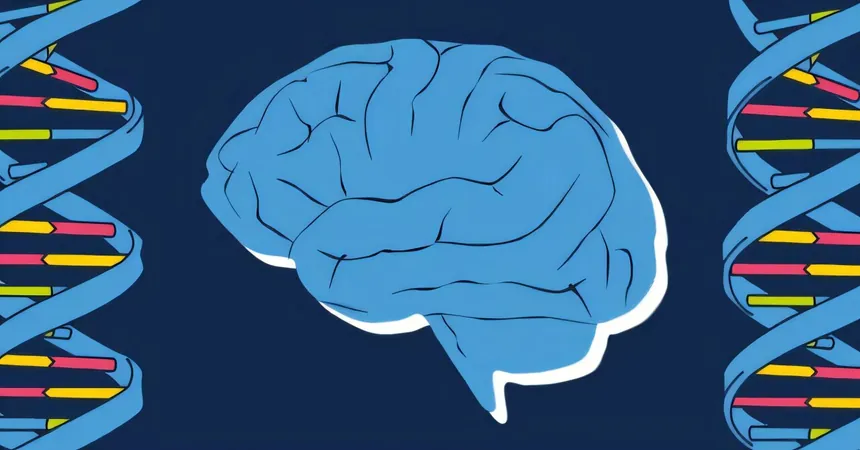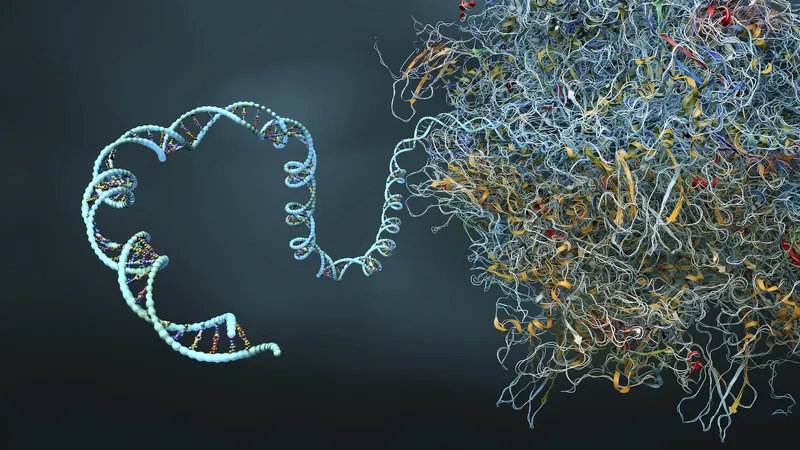
Revolutionizing Mental Health: Breakthroughs in Psychiatric Genomics Unveiled
2025-06-27
Author: John Tan
Uncovering the Genetic Tapestry of Mental Disorders
Researchers from the UNC School of Medicine and the Gillings School of Global Public Health have released a groundbreaking update on psychiatric genomics, showcasing transformative findings from the last five years that could reshape our understanding of mental health.
Our genes play a pivotal role in psychiatric disorders, linking many conditions back to specific areas on our genome. Since the formation of the Psychiatric Genomics Consortium (PGC) in 2007, an international coalition of scientists has been tirelessly working to unravel the genetic enigmas behind disorders like schizophrenia, depression, and anorexia.
Next Steps in Psychiatric Research
In a preprint article co-led by prominent researchers Cynthia Bulik, Ph.D., and Patrick Sullivan, MD, the PGC outlines future research directions and highlights significant past discoveries. Bulik emphasizes that the next wave of research will broaden the understanding of genetic influences on psychiatric disorders and their treatment responses, promoting innovative and collaborative scientific endeavors.
From Twins to Technology: Evolution of Research
Historically, studies involving twins provided early insights into the inheritance of mental disorders. However, recent advancements in technology have propelled researchers to conduct genome-wide association studies (GWAS) that compare DNA from large groups of individuals with and without psychiatric disorders, revealing critical genetic differences.
Major Breakthroughs in Key Disorders
In 2022, the PGC utilized GWAS to pinpoint 287 genetic locations linked to schizophrenia. A year later, researchers made significant strides in understanding major depressive disorder, connecting 635 genetic locations to this condition using extensive multi-ancestry data.
Moreover, the PGC’s work on anorexia nervosa has coined a new term: "metabo-psychiatric disorder," acknowledging the interplay between psychiatric and metabolic genetic components.
Connecting the Dots: Uncommon Variants and Co-occurring Disorders
Recent research indicates that many psychiatric disorders share common genetic threads. In 2019, scientists identified 136 genomic "hot spots" associated with conditions ranging from autism spectrum disorder to bipolar disorder, with many displaying pleiotropy—meaning they affect multiple disorders.
Insights into Substance Use Disorders
The PGC has also shed light on the genetics of substance use disorders, identifying 19 genetic signals associated with co-occurring issues like alcohol and opioid addiction, paving the way for targeted treatment approaches.
Delving Deeper into Autism and Intellectual Disabilities
In their ongoing quest, researchers have unearthed significant genetic deletions and duplications linked to autism and intellectual disabilities. Their discoveries around the NRXN1 gene underline the genetic intricacies of these conditions.
A Holistic Approach: Integrating Protein Data
The consortium isn't just collecting data; it's enhancing understanding by incorporating protein data into its GWAS findings, allowing for a more comprehensive view of the biological mechanisms at play—ultimately enhancing clinical care.
Looking Ahead: The Future of Psychiatric Genomics
As research progresses, the PGC aims to expand its genetic discoveries further, addressing the diverse responses to treatments across various psychiatric disorders and populations alike. This endeavor promises to revolutionize our approach to mental health, making strides towards more effective therapies.





 Brasil (PT)
Brasil (PT)
 Canada (EN)
Canada (EN)
 Chile (ES)
Chile (ES)
 Česko (CS)
Česko (CS)
 대한민국 (KO)
대한민국 (KO)
 España (ES)
España (ES)
 France (FR)
France (FR)
 Hong Kong (EN)
Hong Kong (EN)
 Italia (IT)
Italia (IT)
 日本 (JA)
日本 (JA)
 Magyarország (HU)
Magyarország (HU)
 Norge (NO)
Norge (NO)
 Polska (PL)
Polska (PL)
 Schweiz (DE)
Schweiz (DE)
 Singapore (EN)
Singapore (EN)
 Sverige (SV)
Sverige (SV)
 Suomi (FI)
Suomi (FI)
 Türkiye (TR)
Türkiye (TR)
 الإمارات العربية المتحدة (AR)
الإمارات العربية المتحدة (AR)